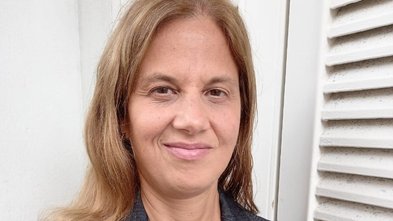
ILO's Insurance for Development Training 2020
Three questions to participants
properties.trackTitle
properties.trackSubtitle
The “Insurance for Development” training, hosted by the ILO’s Impact Insurance Facility, took place from 28 September to 30 October 2020. Around 80 participants from 35 countries signed up for this online version of the training. The Munich Re Foundation sponsored the full or partial fees of 16 participants from the World Food Programme (which was recently awarded the Nobel Peace Prize), NGOs, microinsurance providers and representatives from supervisory authorities. We asked three grantees about the impact of COVID-19 on their everyday work and the key lessons from the seminar.

SUSEP is responsible for the supervision and control of the insurance, open private pension funds and capitalisation markets in Brazil. I work as a technical analyst in the coordination of micro, mass and life insurance regulation. Our duty is to propose and update regulation on those topics. I am currently involved in the review of the alternative distribution channels legislation and the update of the microinsurance rules.
What were your main lessons from ILO’s training?
The Insurance for Development course showed in a practical way that impact insurance can play an important role in social and economic development. Responsible insurance provision involves all core processes in the value chain and enables clients to use insurance effectively. Providing responsible insurance at scale will depend on combining efforts from the full range of stakeholders such as regulators, the insurance industry and distributors. Building business viability through a client-centric approach is key to success.
How did COVID-19 affect your daily work? What were the main challenges?
Thanks to the payment of emergency government aid during the pandemic, more than 21 million people opened their first digital bank account. This event created an important insurance access channel for the low-income population. Many people became more aware of the importance of insurance because they lost jobs or had their businesses closed, including micro and small businesses. The pandemic has accelerated the offering of innovative products such as coverage for remote medical appointments and pay-per-use insurance.

I’m a Risk Transfer Specialist at the World Food Programme in Maputo. WFP is currently implementing an Integrated Climate Risk Management (ICRM) project, based on its R4 Rural Resilience Initiative, across four different provinces, targeting around 5,000 smallholder farmers. My responsibilities include general oversight of the introduction of the risk transfer component (a weather index insurance covering drought/dry spells), including product design, pricing and the creation of a sustainable distribution channel. Moreover, I manage the promotion and usage of informal savings groups and I’m currently prospecting FSPs (Financial Service Providers) for the provision of a formal credit for our project participants.
What were your main lessons from ILO’s training?
The training from the Impact Insurance Facility offered unique experiences and insights from a wide range of stakeholders and countries. The exchange and discussions that stem from the facility are always relevant and accurate, and provide a unique opportunity for interaction with key practitioners. While there is an obvious difference in the various markets and case studies that were discussed, the theoretical approaches proved to be very insightful. I look forward to the possibility of leveraging the network created by the facility and the Munich Re Foundation to increase my exposure to inclusive insurance, my experience and further grow professionally.
How did COVID-19 affect your daily work? What were the main challenges?
The pandemic has increased the challenges in the mobilisation of the target farmers for their specific training on conservation agricultural practices and has added logistical issues for the dissemination of our financial literacy strategy.

What is your role and responsibility in your organisation?
BRAC is the largest international non-governmental development organisation in the world. BRAC microfinance provides loans to over 7 million clients, of which 87% are women. I have managed the operational issues of the credit shield insurance project since its inception. Clients can opt in for credit shield insurance when applying for their loan. If the insured pass away or have total and permanent disability while they have an active policy with BRAC, the household will not have to pay the outstanding loan amount from the incident date. Currently, I am working on research, coordination, monitoring and evaluation, digitisation, etc., including communications. I also work on new project development.
What were your main lessons from ILO’s training?
I have three major takeaways from this training: a) Learning good example cases from around the globe and utilising them for the existing project improvement and new ideas development; b) Continuously questioning the existing processes, even if they appear satisfactory. Also defining the fine line between profitability and client value in the organisation and designing the tools and strategies accordingly; and c) Seeing business processes from a top-view angle allows us to understand the improvement areas.
How did COVID-19 affect your daily work? What were the main challenges?
I found this situation an eye-opener for me in pushing myself towards new learning to remain agile. We successfully conducted remote training, enhanced the system and started Digital Claim from June 2020 amidst the lockdown. I see that this new way of working can save valuable time to invest in better opportunities. The major challenge was the inability to visit clients and field offices during lockdown, which is absolutely necessary. New project development and launching was severely affected as well.